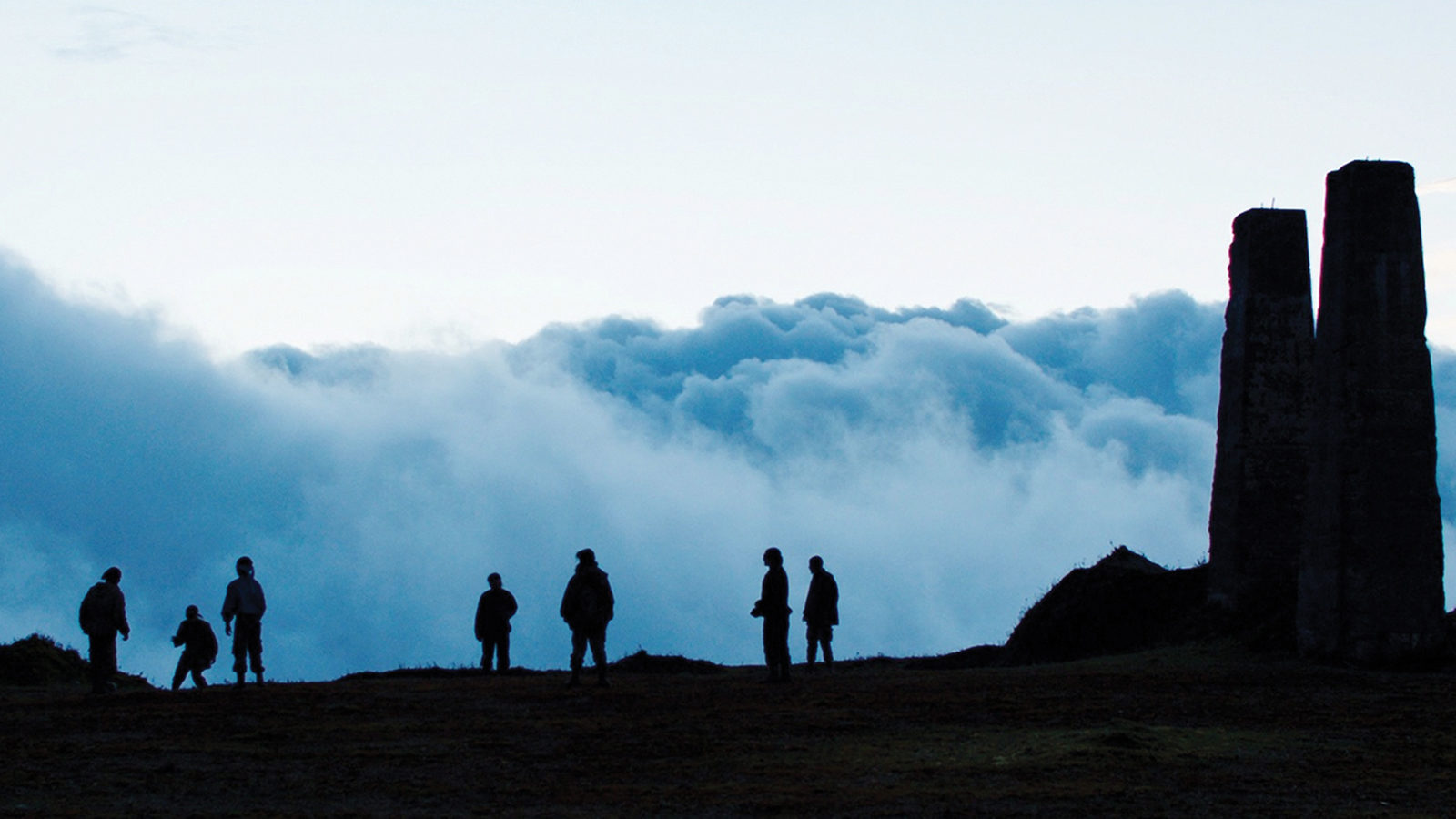
The Big Screen: Monos
Alejandro Landes's Monos opens on the edge of a nondescript, cloud-shrouded cliff. A group of blindfolded teenagers walk around tentatively, arms outstretched, calling out comical-sounding names: Rambo! Boom Boom! Smurf! It looks like some kind of dystopian, Battle Royale-esque torture ritual, when suddenly one of the teens kicks a ball through the air and the group breaks into rambunctious cheers. They're playing a game, it turns out--a game of daredevil football in the middle of an altitudinous nowhere.

The scene sets the template for Landes’s third feature. Any answer to how these adolescents got here is constantly deferred or denied, and the action teeters uneasily between menace and mirth: moments of violence turn out to be displays of joy and affection, the distinctions blurred by war’s ravages on unformed, pubescent minds. The eight teens at the center of the film constitute the Monos (“monkeys”), a remotely stationed squadron of a paramilitary force known simply as The Organization. They’re tasked with watching over an unnamed American hostage, the “Doctora” (a perfectly brittle Julianne Nicholson), and a milk cow, bestowed upon them in the opening scenes by their drill instructor, The Messenger (Wilson Salazar). He orders them to guard the cow with their lives (no prizes for guessing what happens next), and then leaves them to their high-energy antics: dancing, drinking, mating.
Monos unfolds in its first half like a mud- and sweat-soaked cross between Bertrand Bonello’s Nocturama (2016) and Claire Denis’s Beau travail (1999): it shares the former’s hyper-stylized, coolly abstract inquiry into teenage rage against the machine, and the latter’s obsession with the sensuality of bodies in militaristic, rhythmic motion. Landes–whose previous credits include Cocalero (2007), a documentary about Bolivia’s President Evo Morales, and Porfirio (2011), a docu-thriller about a Colombian man crippled by a stray police bullet–renders the rarefied setting and the giddiness of its young, violent inhabitants with an inspired sense of style. The film’s zooms and smash-cuts and crisp, incandescent widescreen compositions, shot by Dutch DP Jasper Wolf, are intensely watchable, although Monos‘s most compelling appeal is to the ears: as in her triumphant contribution to Jonathan Glazer’s Under the Skin, electronic composer Mica Levi holds the film (and its viewers) in thrall with a score that brims with suggestive, unsaid meaning.
Although Landes’s script keeps context to an evocative minimum, the shadow of Colombia’s recently (and tentatively) concluded civil conflict is unmistakable in Monos–in fact Salazar, hired initially to train the actors in the ways of guerilla soldiers, is a former commander of the FARC (the Revolutionary Armed Forces of Colombia). But as things start to go wrong, sending the Monos fleeing into the jungle and forcing them to go rogue, Landes dispenses with these sociopolitical ambitions for a more simplistic urtext: Lord of the Flies, whose influence is made unnecessarily obvious by the brandishing of a pig’s head on a stick, and which reduces the real-life conflict to mere local color in a rather apolitical fable of survival. The internecine power-grabs and betrayals that start to fray the Monos are at best predictable and at worst reactionary; they paint war as something primordial and unknowable, rather than historical and structural, which is all the stranger given the history of the setting.
Monos feels more radical when its subjects make love (literally), not war. The teenagers, raised with strict rules but without heteronormative conventions, engage in an unironic and unselfconscious queerness: early in the film, three Monos kiss all together as part of an affectionate experiment; there are glimpses of characters in cross-dress; and sex is desired and wielded across gender lines for both power and pleasure. The slow-emerging protagonist of the film, a sensitive, wide-eyed Mono named Rambo, presents masculine (and is addressed with both male and female pronouns in the film) but is played by actress Sofia Buenaventura. Rambo’s growing tenderness and inability to be ruthless mark a turning point in the film, which pits the freewheeling play of the juveniles’hermetic life in the mountains against the growing, patriarchal rigidity of their rogue power structure. It is in these moments, when Monos inspires questions instead of simply withholding answers, that the film feels genuinely provocative.







